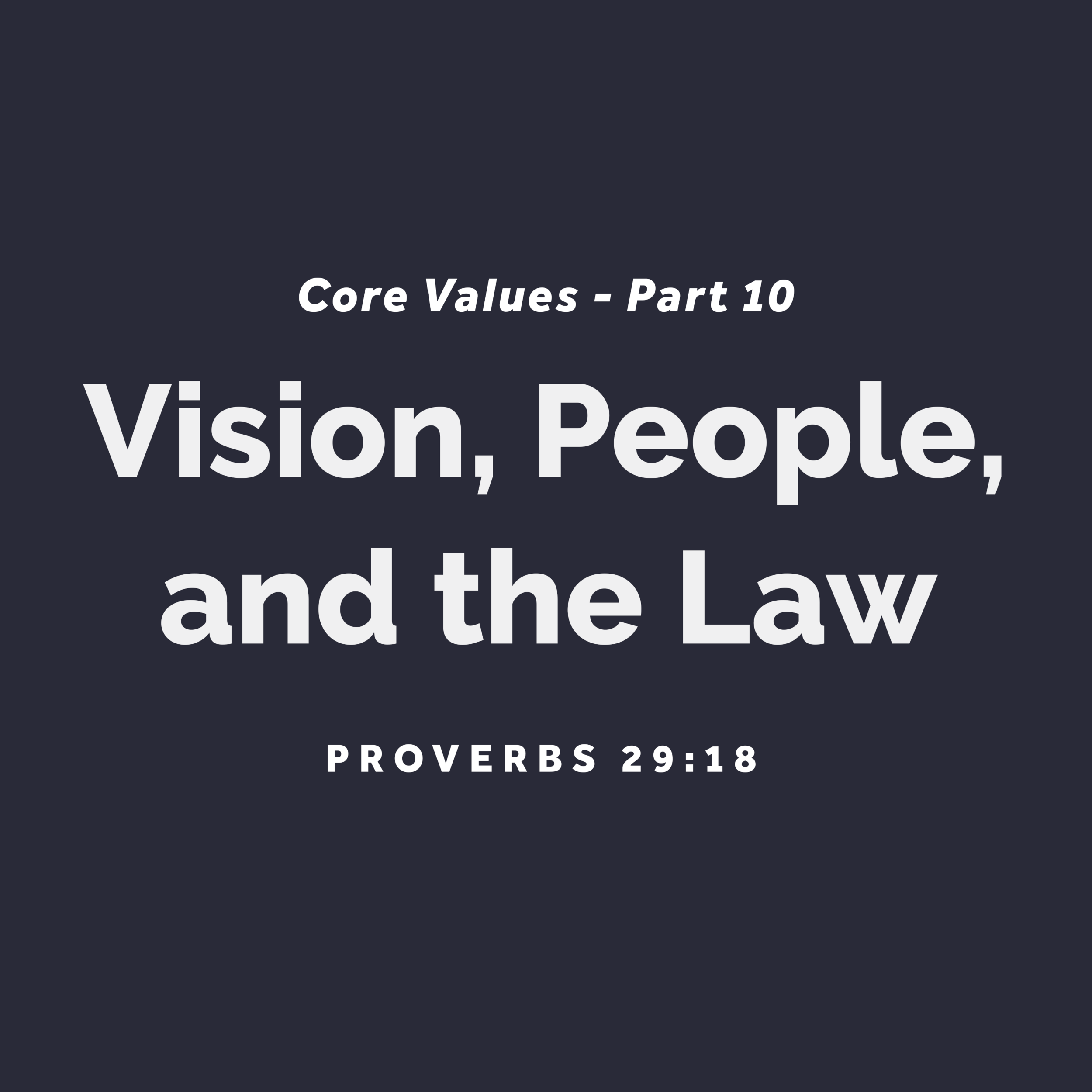
Vision, People, and the Law
Core Values - Part 10 • Proverbs 29:18• January 2, 2022 • English Service 10:00 AM
Sermon Introduction
One would observe that ancient Hebrew poetry often used parallelism. Parallelism occurs when the second line conveys the same meaning to the first line. Proverbs 29:18 shows this. The first line warns about people going wild or having no restraint. The second line shows how blessed is the person who keeps the law—in other words, having restraint. The first line illustrated the importance of vision, while the second line expressed the importance of the law.
Furthermore, the writer made a connection between vision and the law. The two are related. Thus, one should not speak of a vision that is unrelated to the keeping of the Covenant. The proverb made a clear contrast between no vision and the law. It also contrasted with people who have no restraint and the happy person who keeps the law. The writer showed how the second line is like the first line by using contrast.
Proverbs 29:18 ESV
18 Where there is no prophetic vision the people cast off restraint,[c]
but blessed is he who keeps the law.
Notes
One would observe that ancient Hebrew poetry often used parallelism. Parallelism occurs when the second line conveys the same meaning to the first line. Proverbs 29:18 shows this. The first line warns about people going wild or having no restraint. The second line shows how blessed is the person who keeps the law—in other words, having restraint. The first line illustrated the importance of vision, while the second line expressed the importance of the law.
Furthermore, the writer made a connection between vision and the law. The two are related. Thus, one should not speak of a vision that is unrelated to the keeping of the Covenant. The proverb made a clear contrast between no vision and the law. It also contrasted with people who have no restraint and the happy person who keeps the law. The writer showed how the second line is like the first line by using contrast.
Other translations render “prophetic vision” as “divine revelation” or “divine guidance” or simply “vision.” One point of view might say, develop your vision, yet a vision inspired by the mandate of Scripture.
Without a vision, people will do whatever pleases them. If people do not exercise restraint, there will be chaos in the land. But, on the other hand, there is order when people practice restraint, and society will experience peace.
People should anchor every vision on Scripture. Respect for the Law produces a blessed people. A godly direction based on the futuristic plan of God avoids people going in circles with their lives.
Application
A vision is necessary for all individuals. Everyone must follow a vision. Those who would lead should craft one and rally the people. Yet let us make sure that we find divine inspiration from God’s word.
Let us anchor our faith in the Holy Scriptures. Our faith in Christ leads to obedience, which is partially a restraint to evil. But obedience is not simply restraint. The other side of obedience is the proactive side of fulfilling the vision.
What is God’s prophetic plan? The answer is related to the mission, proclaiming the gospel, and making disciples of all nations. Therefore, every personal direction we have should align with the mission God gave us.
Discussion / Reflection
Explain the parallelism in the proverb?
What happens when there is no vision? What happens to the person who keeps the law?
What should be the nature of this vision? How is it connected to the law?
How should we apply this to our church community?



